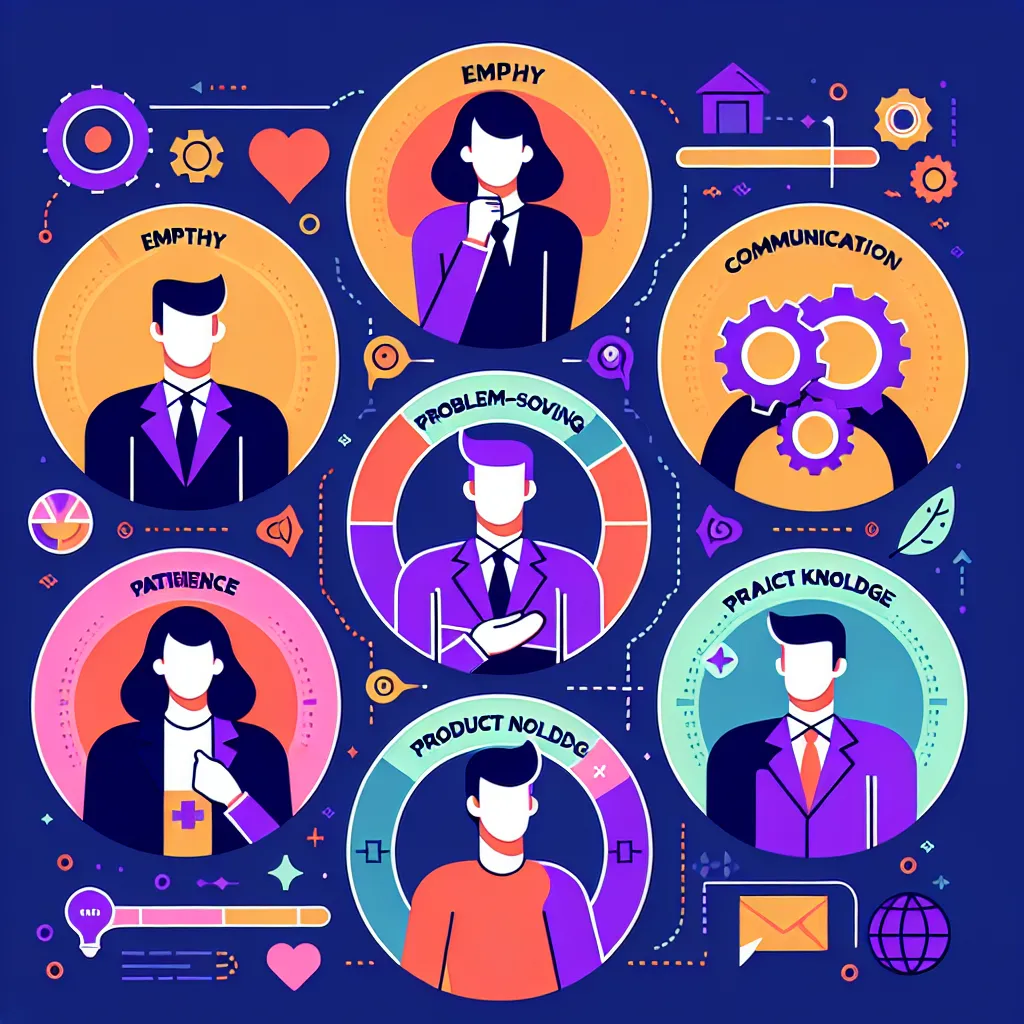Are you preparing for a job interview where you’ll need to discuss your customer service experience in English? Whether you’re a seasoned professional or just starting your career, effectively communicating your skills and experiences in this area can be crucial to landing your dream job. In this guide, we’ll explore the best strategies to articulate your customer service expertise confidently and impressively in English.
Understanding the Importance of Customer Service Experience
Customer service experience is a valuable asset in many industries. It demonstrates your ability to interact with clients, solve problems, and represent a company positively. When discussing this experience in English during an interview, you’re not just showcasing your language skills but also your professional capabilities.
 Customer Service Interview
Customer Service Interview
What Employers Look for in Customer Service Experience
When you’re discussing your customer service experience, interviewers are typically assessing several key aspects:
- Communication skills
- Problem-solving abilities
- Patience and empathy
- Ability to work under pressure
- Knowledge of customer service best practices
Strategies for Discussing Your Customer Service Experience
1. Use the STAR Method
The STAR method (Situation, Task, Action, Result) is an excellent framework for structuring your responses about customer service experiences:
- Situation: Describe the context of your experience.
- Task: Explain what your responsibility was in that situation.
- Action: Detail the steps you took to address the task.
- Result: Share the outcomes of your actions.
Example:
“In my previous role at XYZ Company, I encountered a customer who was frustrated with a product malfunction (Situation). My task was to resolve the issue and ensure customer satisfaction (Task). I actively listened to the customer’s concerns, empathized with their frustration, and quickly arranged for a replacement product to be sent (Action). As a result, the customer’s problem was solved efficiently, and they left a positive review about our customer service (Result).”
2. Highlight Specific Skills
When discussing your experience, focus on specific skills that are valuable in customer service:
- Active listening
- Clear communication
- Conflict resolution
- Patience
- Product knowledge
Example:
“Throughout my customer service experience, I’ve honed my active listening skills. This has allowed me to accurately understand customer needs and provide tailored solutions efficiently.”
3. Quantify Your Achievements
Whenever possible, use numbers to quantify your achievements in customer service:
Example:
“In my role at ABC Corporation, I maintained a 98% customer satisfaction rate and successfully resolved an average of 50 customer inquiries per day.”
4. Demonstrate Cultural Awareness
If you’ve worked with international customers, highlight your ability to navigate cultural differences:
Example:
“Working for a global company, I’ve interacted with customers from over 20 different countries. This experience has enhanced my cultural sensitivity and ability to communicate effectively across diverse backgrounds.”
Common Interview Questions and Sample Answers
Here are some typical questions you might encounter when discussing your customer service experience, along with sample answers:
-
Q: “Can you describe a challenging customer service situation you’ve faced and how you resolved it?”
A: “Certainly. At my previous job, we had a customer who was extremely upset because their order hadn’t arrived on time for an important event. I first apologized sincerely for the inconvenience and assured them I would do everything possible to help. I quickly tracked their package and discovered it was delayed due to a shipping error. I arranged for expedited shipping at no extra cost and provided a discount on their next purchase as a goodwill gesture. The customer was appreciative of the swift resolution and became a loyal repeat customer.”
-
Q: “How do you handle customer complaints?”
A: “I follow a step-by-step approach when handling complaints. First, I listen attentively to understand the full extent of the issue. Then, I empathize with the customer and apologize for their negative experience. Next, I ask clarifying questions if needed and propose a solution. Finally, I take action to resolve the problem and follow up to ensure the customer is satisfied with the outcome.”
-
Q: “What do you think is the most important skill in customer service?”
A: “While many skills are crucial in customer service, I believe empathy is the most important. The ability to put yourself in the customer’s shoes allows you to understand their frustrations and needs better. This understanding leads to more effective problem-solving and often turns negative experiences into positive ones.”
 Customer Service Skills
Customer Service Skills
Tips for Handling Unexpected Questions
Sometimes, you might face questions about aspects of customer service you’re not familiar with. Here’s how to handle such situations:
- Stay calm and composed.
- Be honest about your lack of specific experience in that area.
- Relate the question to a similar experience you do have.
- Express your willingness to learn and adapt.
Example:
“While I haven’t had direct experience with that particular customer service software, I’m proficient in similar CRM systems. I’m a quick learner and am confident I could become proficient in new systems rapidly.”
Common Mistakes to Avoid
When discussing your customer service experience, be careful to avoid these common pitfalls:
- Negative talk about previous customers or employers
- Overuse of jargon or technical terms
- Lack of specific examples
- Focusing solely on your responsibilities rather than your achievements
- Underselling your skills and experiences
Instead, focus on positive experiences, use clear language, provide concrete examples, highlight your accomplishments, and confidently present your abilities.
Follow-up Questions and Suggested Answers
Here are some additional follow-up questions you might encounter, along with suggested answers:
-
Q: “How do you stay motivated in a customer service role?”
A: “I find motivation in the satisfaction of helping customers solve their problems. Each positive interaction reinforces my commitment to providing excellent service.”
-
Q: “How do you handle irate customers?”
A: “I remain calm and professional, listen actively to their concerns, and focus on finding a solution rather than getting caught up in the emotion of the situation.”
-
Q: “Can you give an example of going above and beyond for a customer?”
A: “Once, a customer needed a product urgently but lived outside our usual delivery area. I personally delivered the item after my shift to ensure they received it on time.”
-
Q: “How do you keep up with changes in customer service practices?”
A: “I regularly read industry blogs, attend webinars, and participate in training sessions to stay updated on the latest customer service trends and best practices.”
-
Q: “How do you handle situations where you can’t meet a customer’s request?”
A: “I always try to offer alternative solutions. If that’s not possible, I explain the situation clearly and empathetically, ensuring the customer understands why their request can’t be met.”
Conclusion
Discussing your customer service experience in English effectively can significantly impact your interview success. By preparing thoughtful responses, using the STAR method, and focusing on specific skills and achievements, you can showcase your expertise confidently. Remember to practice your responses, stay positive, and be ready to provide concrete examples of your customer service prowess.
For more tips on acing your English interview, check out our guide on how to talk about your initiative in an interview. And if you’re looking to enhance your problem-solving skills, which are crucial in customer service, don’t miss our article on how to describe your problem-solving skills in English.
We’d love to hear about your experiences discussing customer service in English interviews. Share your stories or ask questions in the comments below!




